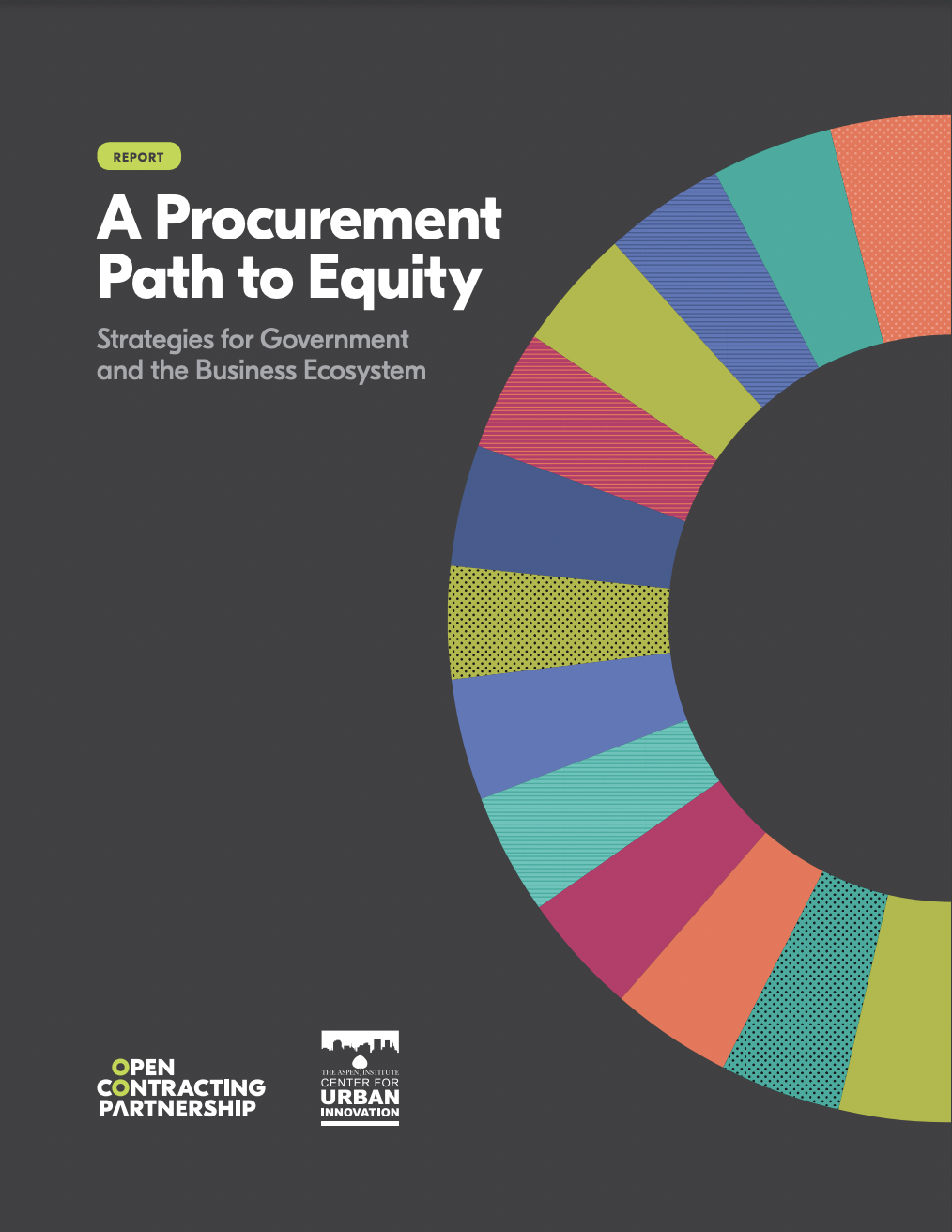If all can participate, all will benefit: our focus on inclusion and equity
Inequality can affect how governments spend their money. The results can be devastating: People in marginalized communities frequently experience lower-quality public services, from public education and transportation infrastructure, to healthcare and beyond. Many small women- or minority-owned businesses are systemically locked out of the $13 trillion global government marketplace because of overly burdensome and opaque procurement processes, creating yet another barrier for these entrepreneurs to growing their companies and sharing their innovations with the market.
Public procurement is embedded in larger, often antiquated public financial management policies and systems that reinforce existing inequities and exclusion. Procurement is more likely to perpetuate the status quo than to challenge it. To create fair outcomes for businesses and deliver higher quality and more equitable public services, we need better public procurement.
Our work
We help local changemakers achieve their goals around equity and inclusion by making procurement more open, fair and effective. Through our Lift impact accelerator, we are working with teams to live their values around equity and improve opportunities for small business owners that have traditionally been excluded. These teams include the cities of El Paso, Texas; Des Moines, Iowa; Lille, France; and Mexico City, Mexico, as well as Ekiti State in Nigeria, and a partnership between the national government of Paraguay and a civil society organization.
We’re also supporting teams that seek to improve service delivery. The civil society-led project in Assam State, India, will support a more equitable distribution of public goods, services, and works procured for flood relief. We’re also continuing to support our Lift alumni team in Mexico City, Mexico, which is working to expand their bike share system so that more people in more neighborhoods are able to access this green and affordable public transportation network.
We help our partners promote and achieve inclusion in their projects through these approaches:
- Inspire and connect people to create a shared understanding that procurement is a lever for social change.
- Co-create and gather input from community members during project design and implementation.
- Redesign systems and processes to share power and reflect values.
- Set objectives and Key Performance Indicators (KPIs) to understand if activities are making a difference.
Our emerging results
Working in more than 50 countries, we are seeing how open contracting is improving lives:
- United States: El Paso is increasing equitable outcomes for veteran-, minority-, and women-owned businesses by lowering barriers to entry, and moving toward more respectful and outcome-oriented contract management.
- Chile: Chileans are able to access more affordable medicines, as new 2020 reforms have enabled the country to buy 60% of critical medicines for less, with the price of some medicines falling by half.
- Colombia: 800,000 children in Bogota now benefit from higher quality school meals provided by local businesses for less money.
- Colombia: In Calí, government reforms to expand access to opportunity included passing a law to require at least 10% of supplier employees to be women head of households, creating opportunities for women in sectors traditionally dominated by men.
- Moldova: A civil society led-initiative has helped the government strengthen its national healthcare system and secure medicines for 14.5% less overall, and ensure that these medicines are getting to the patients who need them through a real-time monitoring system. Savings are re-invested into improving and expanding patient care services.
- Nigeria: Civil society monitoring of construction expenditures for public hospitals found that just 36% of spending led to operational facilities, leading officials to make new commitments to open contracting.
- Paraguay: Funding is getting to more schools that need it as public officials are held to account through civil society monitoring of public spending.
- Ukraine: The government was able to expand the number of people receiving treatment for conditions like HIV from 50,000 to 113,000 within three years, with no increase in budget.
Resources and tools
Empowering women through public procurement and enabling inclusive growth
Qualitative and quantitative frameworks for assessing the inclusiveness of public procurement systems.
